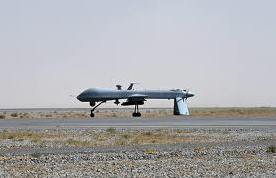 Source: Giza Death Star
Source: Giza Death StarDr. Joseph Farrell
Russia has, of course, long been a space program powerhouse. Sergei
Korolev and his team racked up an impressive lists of “firsts” in the
early days of the Cold War and the space race: Russia was the first to
orbit a man-made satellite, the Sputnik, Russia was the first
to orbit living creatures, and later, a man, and successfully return him
to Earth. Russia was the first to put a woman into space. Russian
probes stretched out across the heavens to the Moon, to Venus, to Mars.
And Russia has maintained, to this day, a reliable stable of
“workhorses” of heavy-lift launch vehicles, and continues – along with
the European Space Agency – to be laying the careful steps of manned
space missions to the Moon and eventually Mars.
But recent events – such as the recent failure of a Russian Mars
probe – have set that country’s space program back. Make no mistake, as
President Dmitri Medvedev said a few weeks ago, Russia intends to
maintain a vigorous manned and unmanned presence in space as part of its
national interest. So setbacks or no, budgetary problems or no, Russia,
unlike its short-sighted American counterpart, intends to stay in
space.
All that said, the head of Russia’s space program recently suggested that the string of failures that has affected that nation’s space posture might not be entirely accidental:
Russia hints at foul play in its space failures
I hope you caught the implications of those first few lines:
“Roskosmos chief Vladimir Popovkin told the Izvestia daily he could not understand why several launches went awry at precisely the moment the spacecraft were traveling through areas invisible to Russian radar.
“‘It is unclear why our setbacks often occur when the vessels are traveling through what for Russia is the ‘dark’ side of the Earth — in areas where we do not see the craft and do not receive its telemetry readings,’ he said.
“‘I do not want to blame anyone, but today there are some very powerful countermeasures that can be used against spacecraft whose use we cannot exclude,’ Popovkin told the daily.”
Now on the face of it, this seems to me to begging a few questions.
First, the idea that there is a “dark side” of the Earth blind to Russia
seems on the face of it to be absurd. Russia, like the USA, has laced
the globe with a network of spy satellites, and it is inconceivable that
the Russian government would not have a similar network of
communications satellites simply for defense purposes if nothing else.
The idea that Russia would have a space program where its manned and
unmanned probes are not able to receive telemetry readings is equally
absurd. And Mr. Popovkin is not a stupid man. He knows this.





